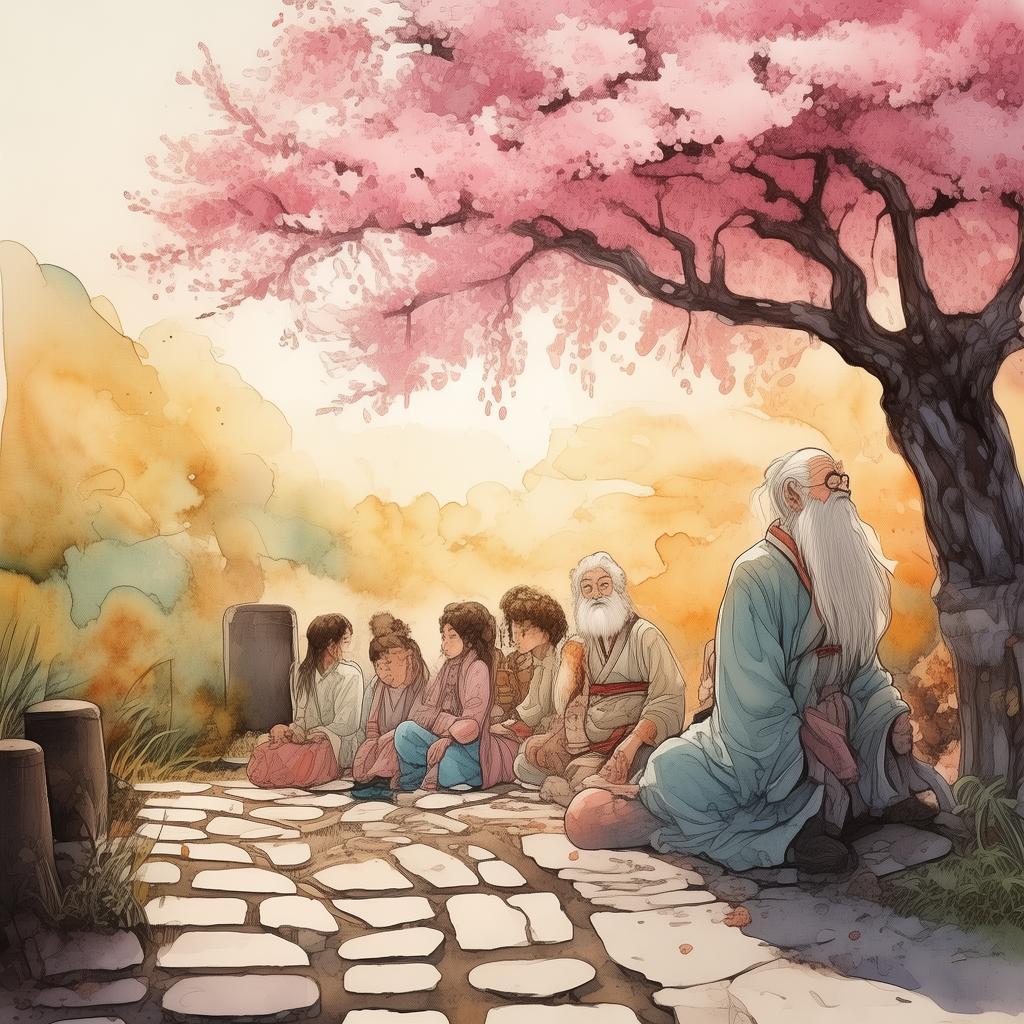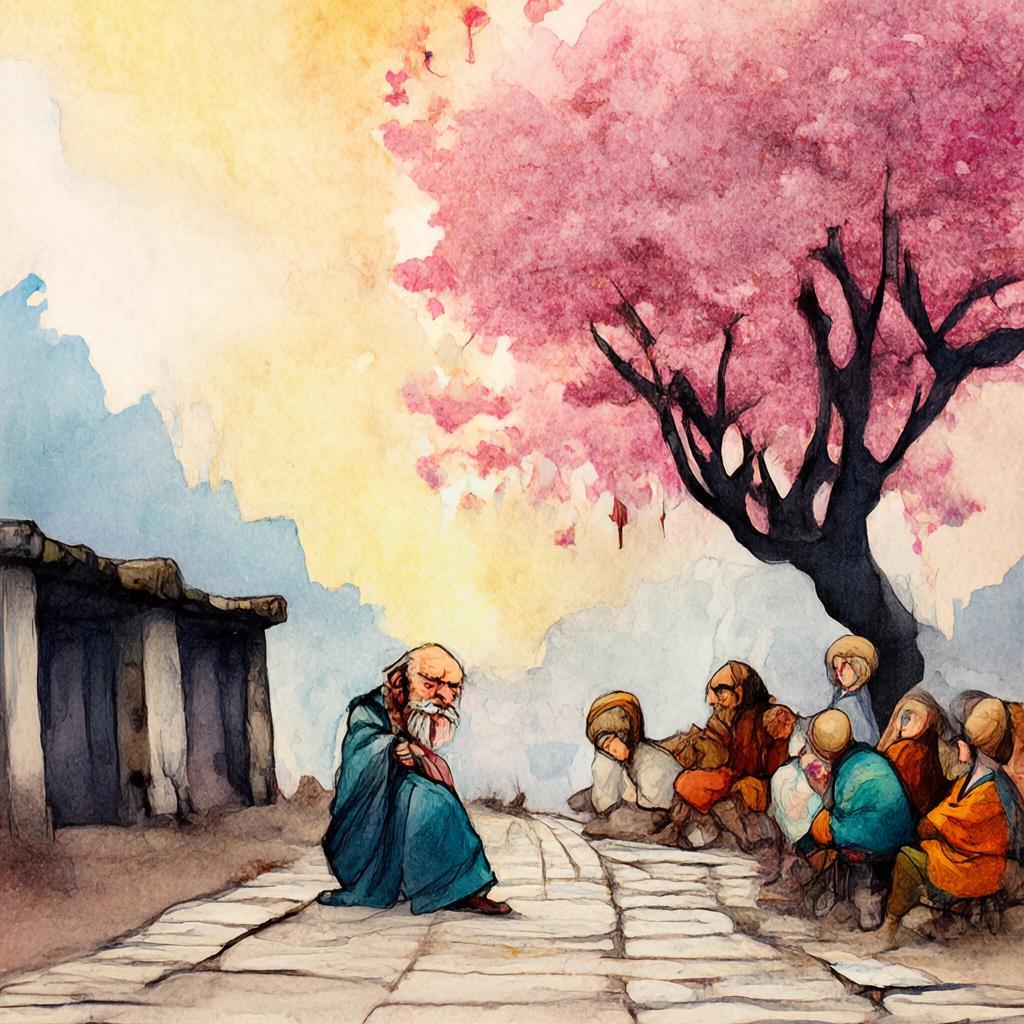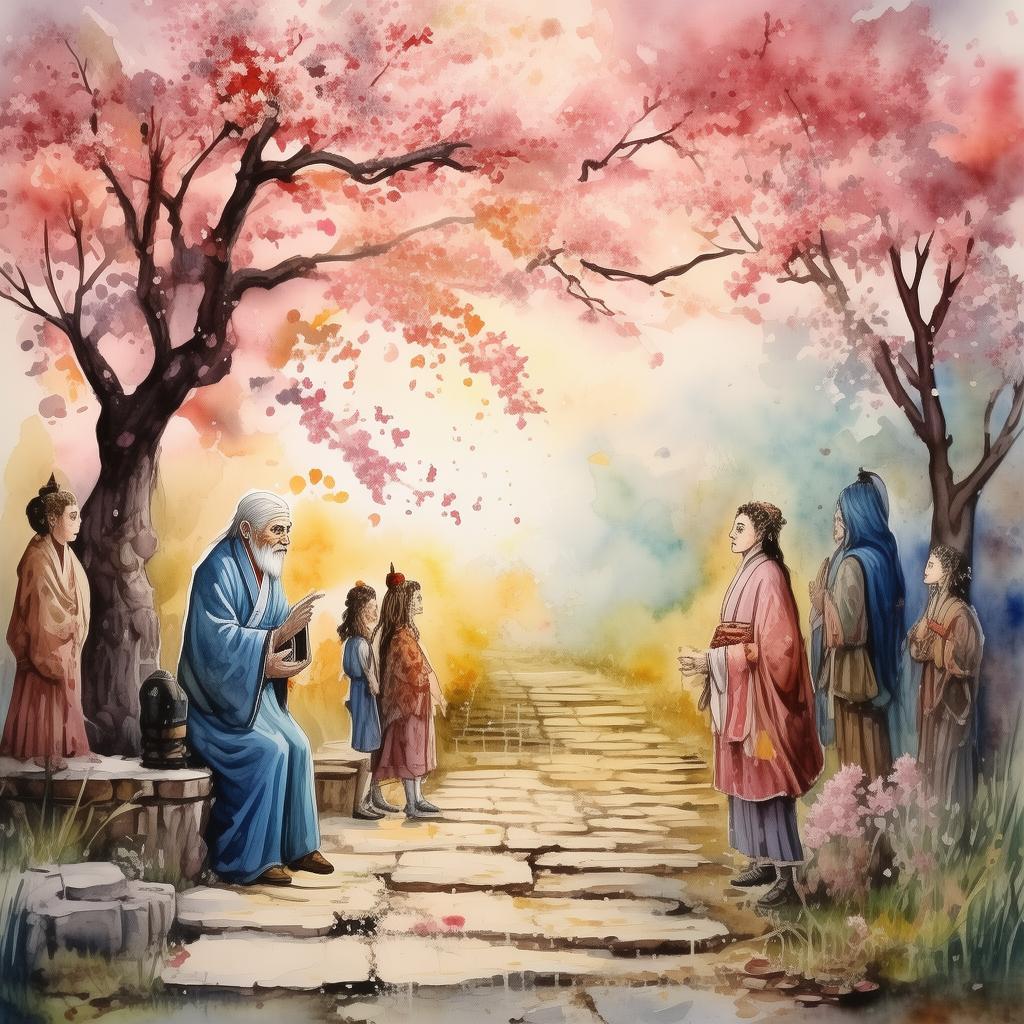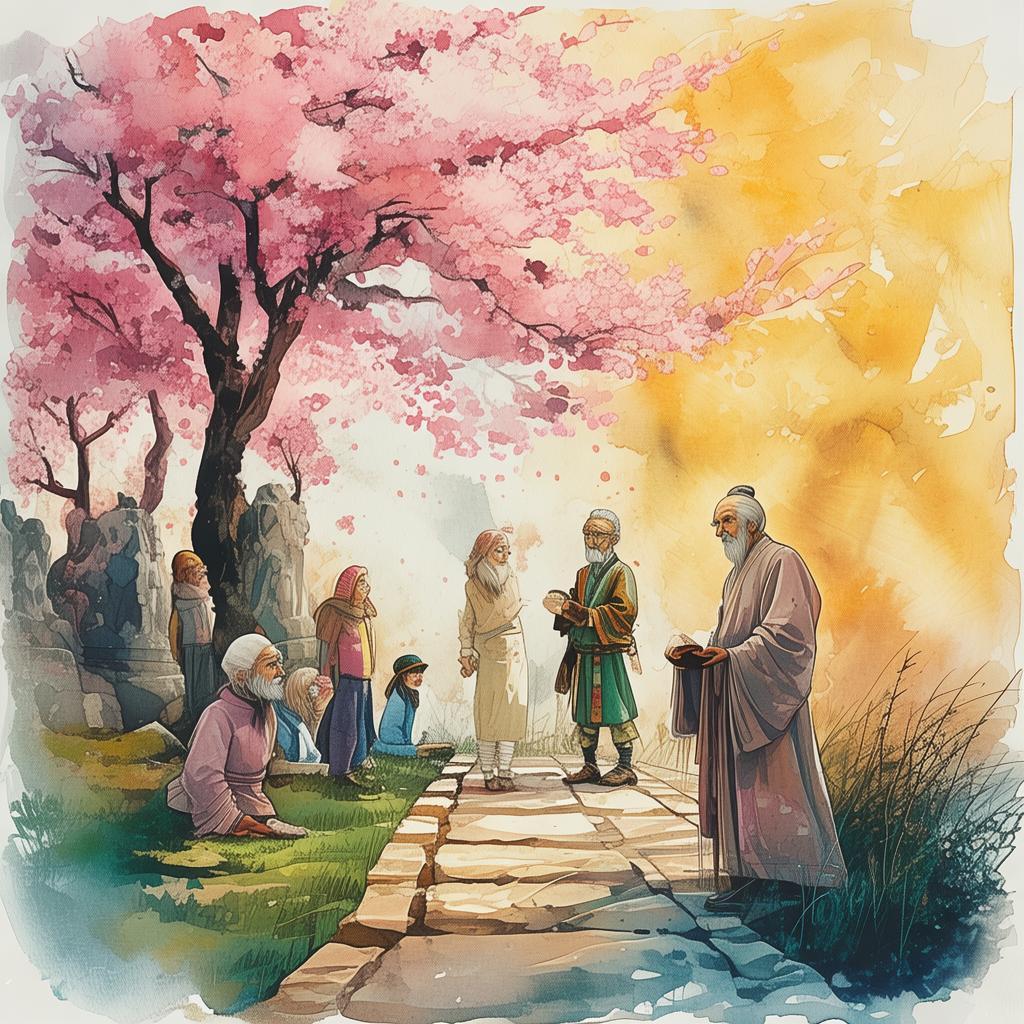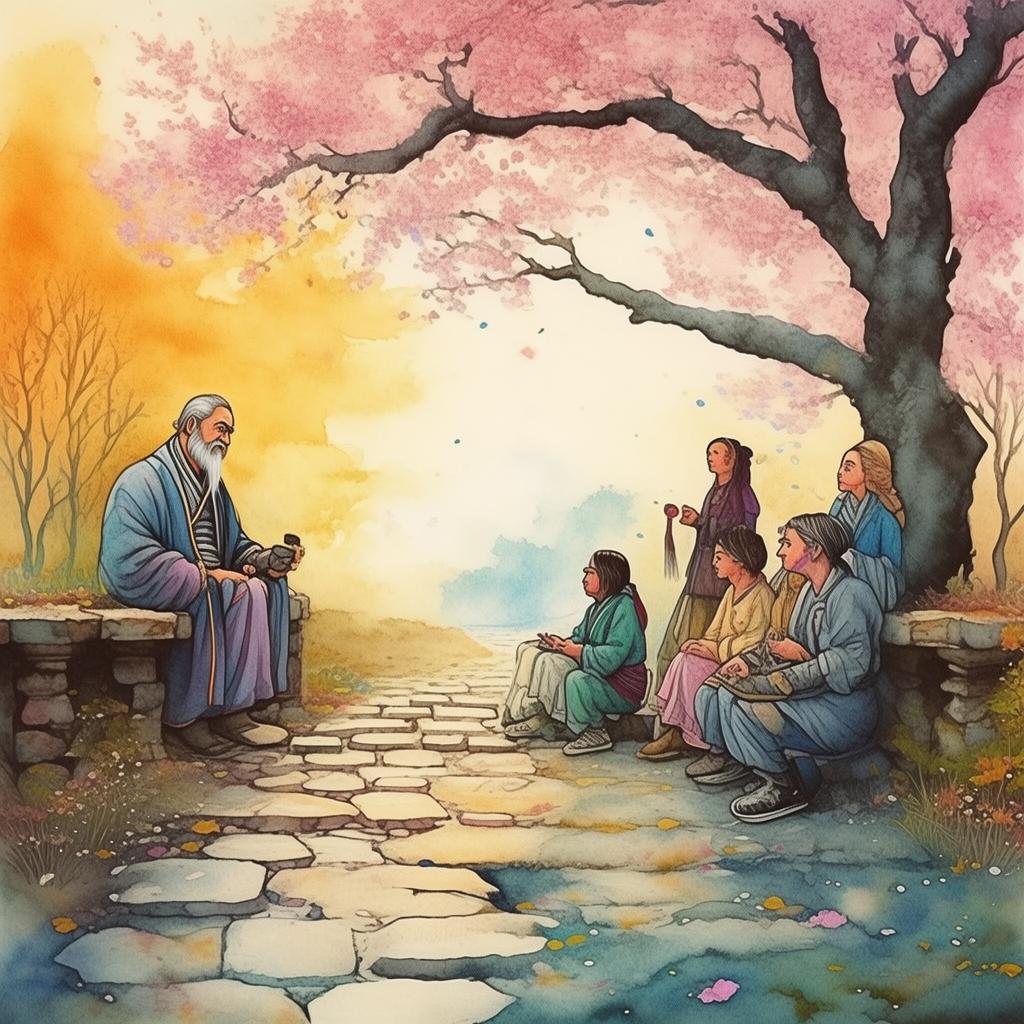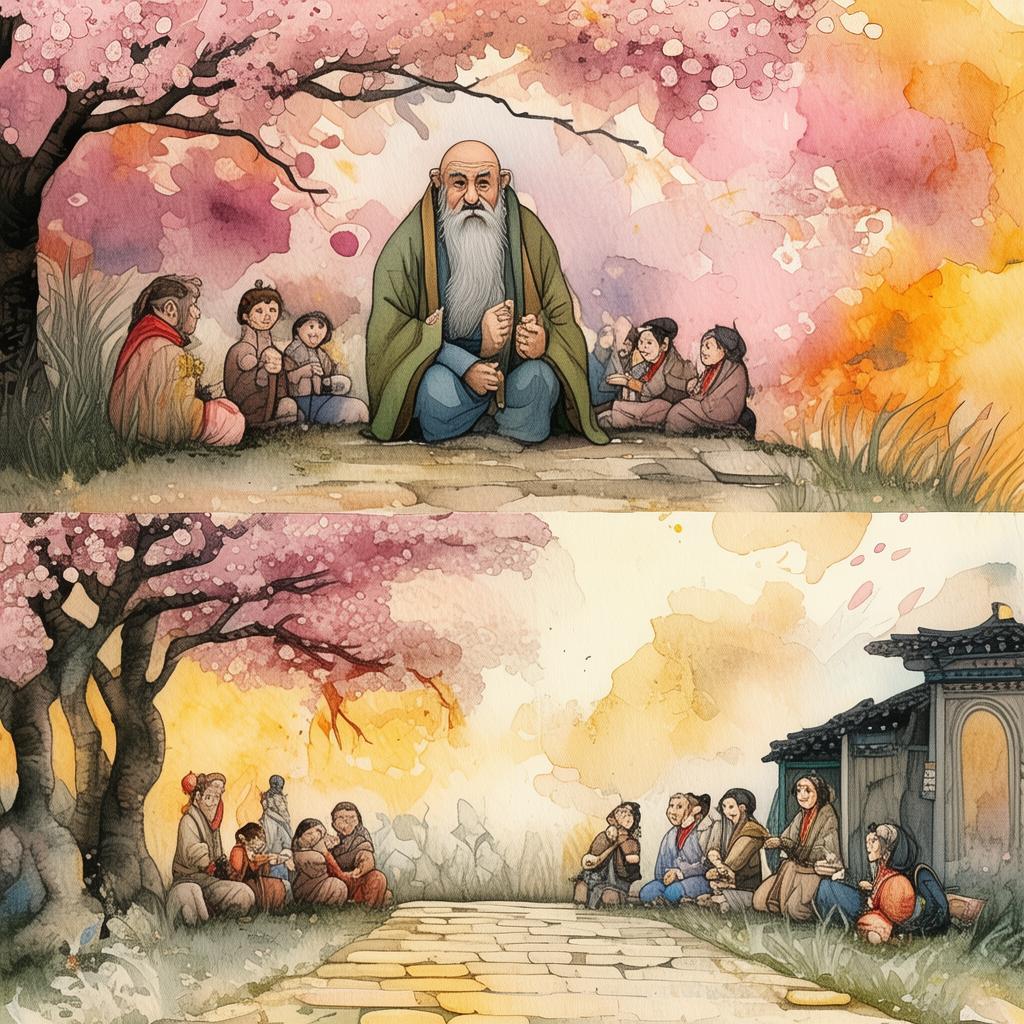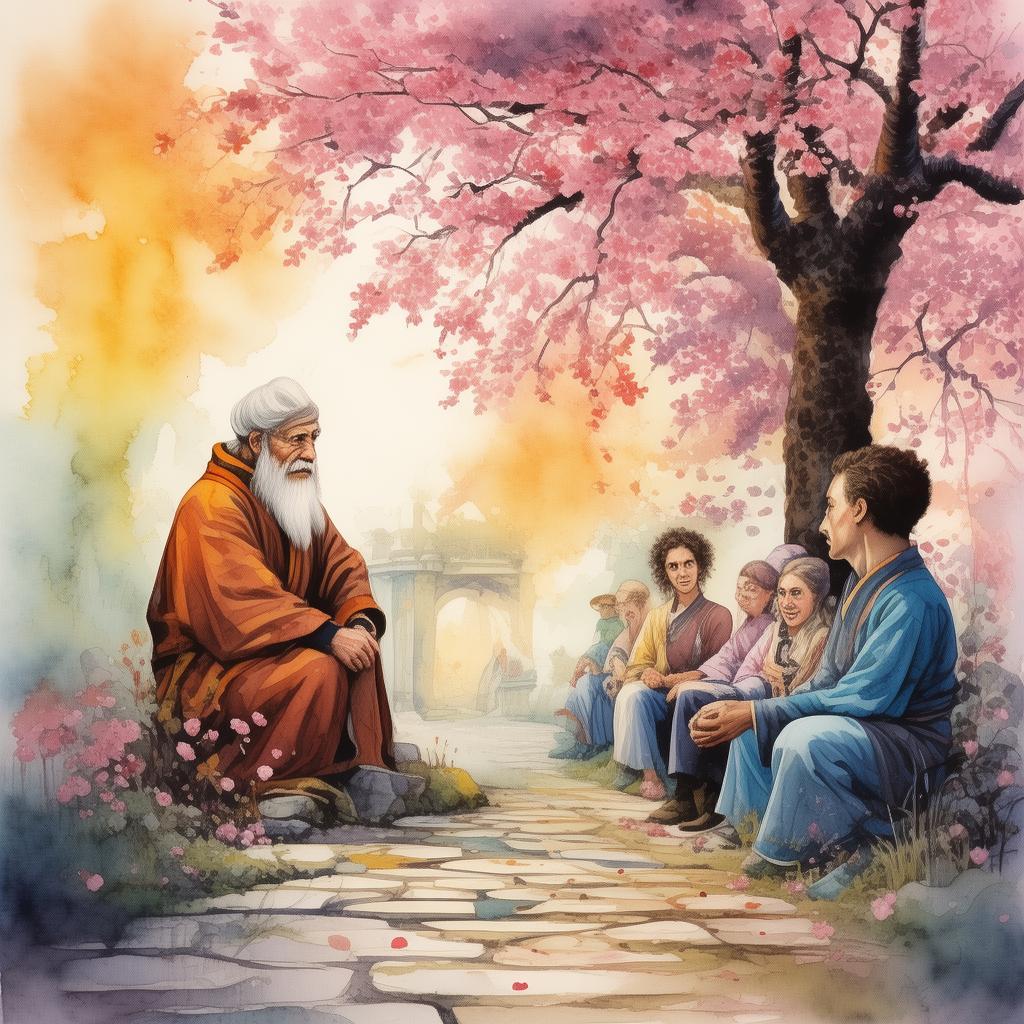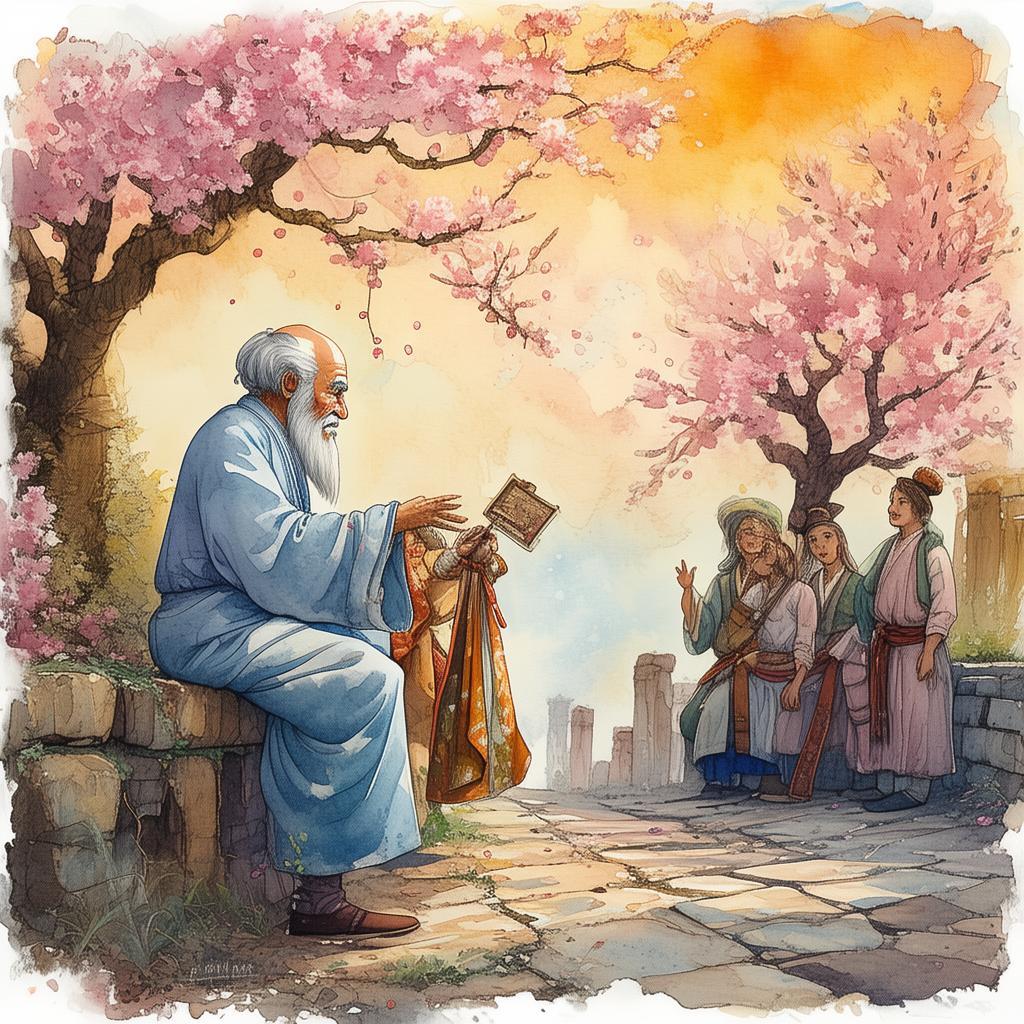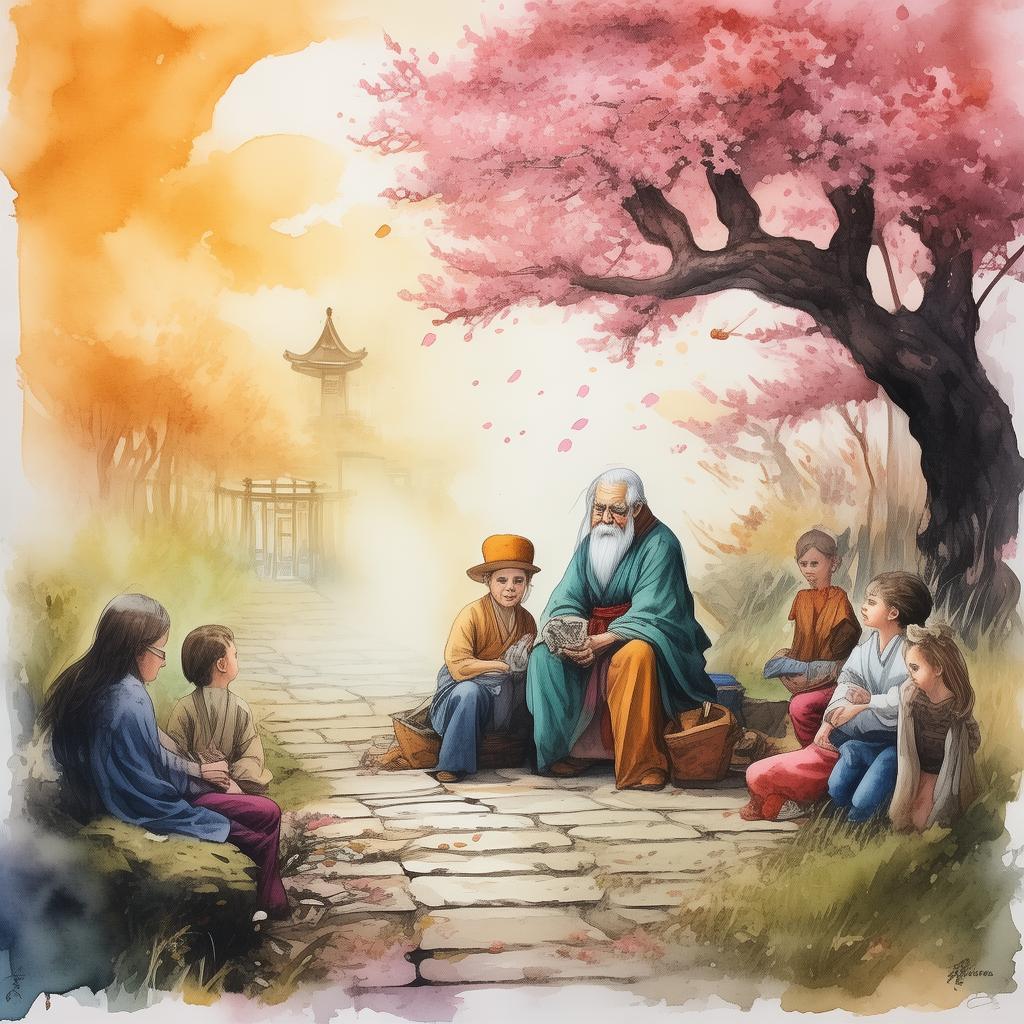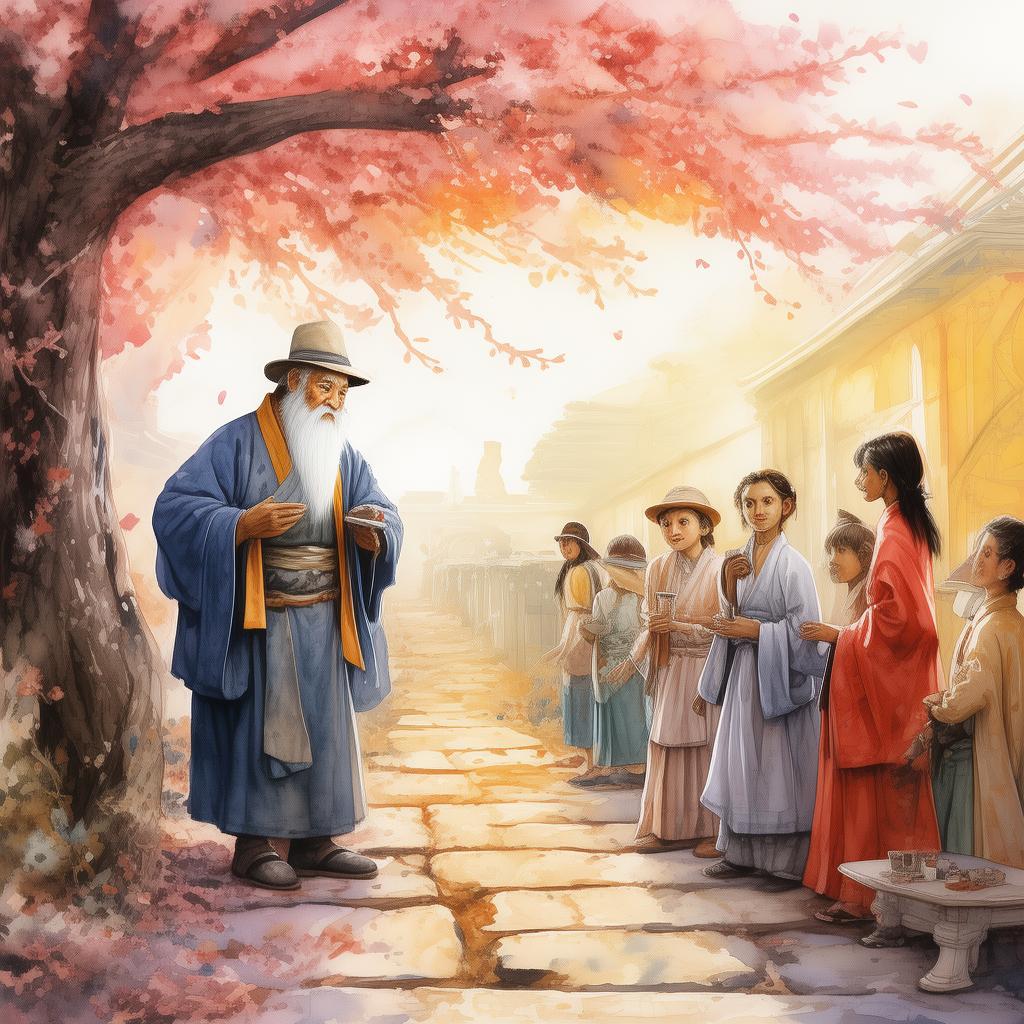Confusion at the Tea House: The Misadventures of "Fang Zhe"
In the bustling heart of ancient China, where the aroma of tea leaves mingled with the whispers of the townsfolk, there was a tea house known far and wide for its lively atmosphere and the tales of its patrons. This was the tale of Fang Zhe, a man whose life was about to take a comical turn, all thanks to a misunderstanding involving the idiom "Fang Zhe."
Fang Zhe was a man of few words, preferring the company of books to the chatter of the common folk. He had a reputation for being wise and insightful, but this was largely due to his quiet demeanor and the occasional profound statement he would make in the midst of conversation. Little did he know that his next visit to the tea house would turn his life into a farce.
One sunny afternoon, as the sun cast long shadows over the cobblestone streets, Fang Zhe entered the tea house. He was on his way to meet an old friend, but the day had other plans for him. As he sat down at his usual table, a group of boisterous merchants were in the midst of a heated debate.
"The problem is clear," one merchant declared, his voice echoing through the room. "We need to Fang Zhe this matter!"
Fang Zhe, intrigued by the use of the idiom, leaned in closer to overhear the conversation. The merchants were discussing a dispute over the ownership of a plot of land, and they were looking for a solution. "Fang Zhe" in Chinese, when used as a verb, means to resolve or to fix a problem.
The idiom "Fang Zhe" had become a running joke among the merchants, who often used it in jest to describe a situation that was beyond their control or to express a desire for a resolution that seemed impossible. But to Fang Zhe, it was a serious request, and he felt compelled to help.
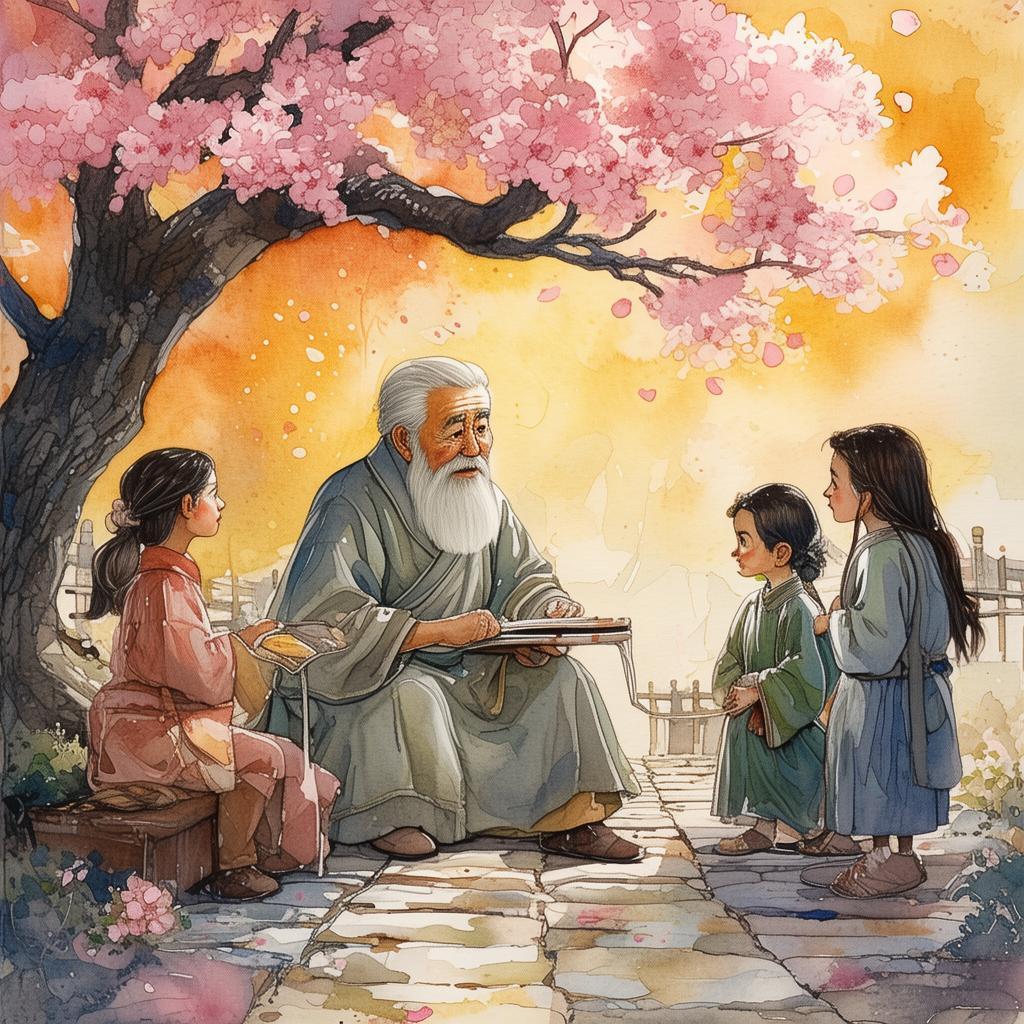
As the merchants continued their debate, Fang Zhe decided to intervene. "I have a solution," he announced, standing up from his seat. "We should Fang Zhe this matter with a cup of tea and a game of Go!"
The merchants, taken aback by Fang Zhe's declaration, looked at each other in confusion. "What do you mean, Fang Zhe with tea and Go?" one merchant asked, scratching his head.
Fang Zhe, misunderstanding the idiom to mean that they should resolve their dispute over a game of Go, was about to explain his plan when another interruption occurred. A young acrobat, performing on the street outside, accidentally dropped a coin into the tea house. It rolled to a stop right in front of Fang Zhe's table.
The merchants, now distracted by the acrobat's performance, looked around in amusement. "Look at Fang Zhe, he's trying to solve our problem with a game of Go," one merchant chuckled.
Fang Zhe, feeling a bit embarrassed, sat back down. He had not realized that the idiom "Fang Zhe" had been used in jest. He decided to take a different approach and asked the tea master to bring out his favorite book on idiom usage, hoping to clarify the situation.
The tea master, intrigued by Fang Zhe's request, brought out the ancient tome. As Fang Zhe began to read, the merchants grew curious, thinking perhaps he had a new solution to their land dispute. But to their surprise, Fang Zhe started to recite various idioms, each one more confusing than the last.
The young acrobat, who had been watching the scene with amusement, decided to join in. He began to mimic Fang Zhe's reading, adding his own creative twists to the idioms. The merchants, now laughing heartily, couldn't help but join in the fun.
As the afternoon waned, the tea house became the scene of a grand misunderstanding. The land dispute was forgotten, and the merchants and the acrobat were too busy laughing to care. Fang Zhe, realizing the absurdity of the situation, joined in the merriment, his initial embarrassment replaced by a sense of camaraderie.
The day ended with the merchants leaving the tea house, their land dispute still unresolved, but their friendship strengthened. The young acrobat, now a local hero, performed a final, daring trick that left the crowd in awe. Fang Zhe, feeling a newfound sense of belonging, left the tea house with a smile on his face, knowing that sometimes, confusion can lead to the most unexpected and delightful of experiences.
The tale of Fang Zhe and the misunderstanding of "Fang Zhe" spread like wildfire through the town, becoming a legend of the tea house. It was said that from that day on, the tea house was never without laughter, and that the idiom "Fang Zhe" was used with a twinkle in the eye, a reminder that sometimes, life is best enjoyed without a clear-cut solution.
✨ Original Statement ✨
All articles published on this website (including but not limited to text, images, videos, and other content) are original or authorized for reposting and are protected by relevant laws. Without the explicit written permission of this website, no individual or organization may copy, modify, repost, or use the content for commercial purposes.
If you need to quote or cooperate, please contact this site for authorization. We reserve the right to pursue legal responsibility for any unauthorized use.
Hereby declared.
